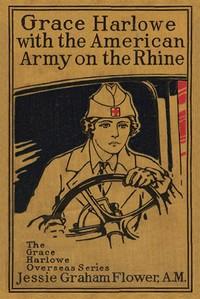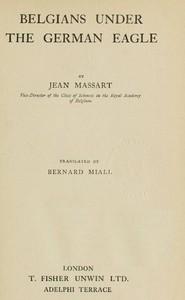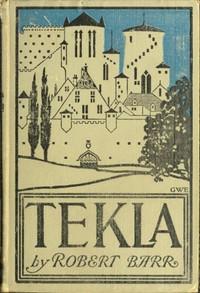Read this ebook for free! No credit card needed, absolutely nothing to pay.
Words: 102527 in 31 pages
This is an ebook sharing website. You can read the uploaded ebooks for free here. No credit cards needed, nothing to pay. If you want to own a digital copy of the ebook, or want to read offline with your favorite ebook-reader, then you can choose to buy and download the ebook.
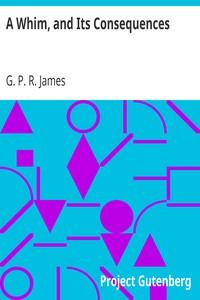

: A Whim and Its Consequences Collection of British Authors Vol. CXIV by James G P R George Payne Rainsford - Fiction
ughter with himself. Without entering into long explanations, he had stated that he had the power to settle that sum upon his wife; implying, untruly, that he had not the power of lending it under other circumstances. Mr. Tracy was obliged to accept his terms without inquiry. Emily yielded with despair in her heart, and dark forebodings in her mind. She had but one consolation--one support--that, by the sacrifice of all that was most dear, she was saving her father. She repeated it to herself a thousand times a-day; and kept it ever before her in the weary and wearing hours of the night. It was the only means she had of keeping the bitter anguish of her spirit from bursting forth before every eye. Do what she would, it did sometimes appear: and Mr. Tracy felt the silent reproach, and dared not pause and think; but filled every moment with some occupation, however trifling, which might withdraw his mind from the terrible consciousness, that he was sacrificing his child.
When the bell rang, he walked down to the drawing-room with a quick step. His two daughters were there alone--Emily exceedingly pale, but calm, though very grave; Rose striving for cheerfulness with an effort almost hysterical. The General was absent in London. Sir William Winslow was not yet down, though he had only arrived that morning from town, and might be supposed to feel eagerness to be with his betrothed as much as possible. Five, ten minutes passed; dinner was announced; and then some more time went by; till, at length, Mr. Tracy sent up a servant to inform his guest that they waited for him; and in a few minutes more, Sir William presented himself. His appearance, however, struck everybody as very strange. His face was usually florid; his manner calm and resolute; his tone quick and decided,--but now his cheek was like a sheet of gray paper; his eyes wandering and haggard; his step vacillating; his tone wavering, and his words confused. He apologized for the tardiness of his appearance, saying, that he had felt fatigued with his journey, and somewhat ill, and had fallen asleep. Emily expressed no concern or sympathy, though his excuses were principally addressed to her. They had had a full explanation together. He knew the terms on which he obtained her hand; and she did not wish him to suppose her moved by feelings she did not experience. It was her person he sought to possess, not her love. That he obtained; she could give no more.
Mechanically he offered her his arm, to take her in to dinner; sat beside her, and talked. It was strange, rambling conversation; sometimes distilled drop by drop, as if each word were the last he would ever speak; sometimes frightfully rapid. They formed a strange contrast, he and Emily--she in her calm taciturnity; he in his perturbed, unequal eloquence. Yet there were strong feelings at the heart of both: hers high, grand, ennobling; a battle fought, a struggle striven, a victory won over self:--his turbulent, agitating, oppressive; a fierce contest, a terrible strife, a losing battle against remorse and dismay. There was nothing harsh, nothing resisting in her demeanour. It was all done; the combat of the mind was over--the assent was given: she yielded herself to the knife: she was Jephthah's daughter in the mountains, the expiation of her father's folly, prepared or preparing for the sacrifice. She was cold. How could she be otherwise? But there was no harshness.
He, on the contrary, was strangely excited. Every time the door opened, he turned round with a start, and looked with straining eyes behind him. When the butler asked in a whisper of Mr. Tracy, what wines he should set upon the table after dinner--a question he had forgotten to put before--Sir William Winslow listened with all his ears to catch the sounds, as if they bore matter of life and death to him; and when Mr. Tracy answered aloud, "Some red hermitage and claret," he applied himself to talk again with exceeding vehemence.
The shadow of the dead haunted him. The gaunt spectre of Remorse was ever before his eyes.
Doubt too--terrible, vague, cloudy, indefinite doubt, the most oppressive of all states of mind, the most fearful form of Nemesis--hung over him like a brooding fury. "Was he really dead?" he asked himself; "Was the man slain?" He had fallen very heavily. That last blow had been followed by a sound strange and frightful: the cracking of solid bone mingled with a deathly groan. The eyes--he had seen them even in the dim twilight--had swum mortally in the sinking head. There had been a gasp which he did not like to think of, a dire clutching after breath of lungs that would receive it no more. What he would have given to creep quietly and silently down those wintry walls, and look at the spot where he had left him! to feel about with his hands in the darkness, and ascertain if the body was still there! But he sat chained to his seat in marble terror. He dared not turn his eyes towards the side where the deed had been done; he hardly dared to think of it, lest his thoughts unwittingly should find a tongue to bear witness against him. Yet he remembered that no one had seen the deed, as far as he knew; that he had met the object of his crime by accident, as he was returning to the house after a short walk in the grounds; that he had encountered no one by the way, either going or coming; that he had even gone out of the house by one of the conservatories, which led directly to a close and narrow walk, so that none could tell he had ever set his foot across the threshold. All these seemed comfortable reflections; but yet, strange to say, they brought neither comfort nor assurance. There is a consciousness that murder has its mysterious witnesses, which ever sits heavily on the felon's spirit. Why, he knew not, but he felt detected, even while he strove to prove to himself that detection was impossible. Oh, crime is a terrible thing!
Nevertheless the whole of dinner-time passed over quietly: there was nothing took place to cause alarm; and when Emily and Rose left the table, Mr. Tracy remarked, "Sir William, you do not seem well. If you would take my advice, you would send for our worthy surgeon, Mr. Woodyard, and adopt some precautionary measures. I think you must have overfatigued yourself."
"I had a hard day's work in London, yesterday," replied his guest, "running after those lawyers all day long; and I travelled all night. I did not sleep either, though I usually sleep as well in a carriage as a bed. Perhaps I am a little heated. My face is flushed, is it not?"
It was as pale as death.
"Well, what is the matter with you?" he asked, as soon as the young baronet was pointed out as his patient; and, pressing his hand upon the pulse, he stared into Sir William's face, as if he wished to put him out of countenance.
"I do not know, doctor," replied the other. "I do not feel well--am fatigued--have got a head-ache--my temples throb; and my thoughts are somewhat confused."
"You have got something on your mind," said Sandy Woodyard, thinking of Emily, whom the old man loved dearly, and did not like to see sacrificed; "your conscience is not quiet, I should think--this is all mental."
Free books android app tbrJar TBR JAR Read Free books online gutenberg
More posts by @FreeBooks

: The Little Man Who Wasn't Quite by Stuart William W Walker Illustrator - Science fiction; Short stories; Skid row Fiction
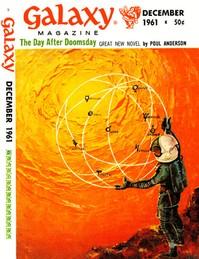

: Grace Harlowe with the American Army on the Rhine by Chase Josephine - War stories; World War 1914-1918 Juvenile fiction; Rhine River Juvenile fiction
